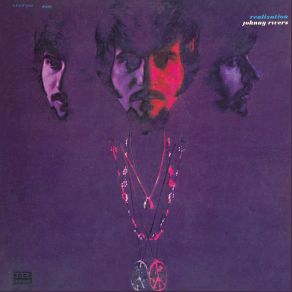Realization
Download links and information about Realization by Johnny Rivers. This album was released in 1968 and it belongs to Rock, Pop, Psychedelic genres. It contains 10 tracks with total duration of 38:48 minutes.

|
|
|---|---|
| Artist: | Johnny Rivers |
| Release date: | 1968 |
| Genre: | Rock, Pop, Psychedelic |
| Tracks: | 10 |
| Duration: | 38:48 |
| Buy it NOW at: | |
| Buy on iTunes $7.99 | |
| Buy on Amazon $7.99 | |
Tracks
[Edit]| No. | Title | Length |
|---|---|---|
| 1. | Hey Joe | 4:33 |
| 2. | Look to Your Soul | 3:11 |
| 3. | The Way We Live | 3:09 |
| 4. | Summer Rain | 3:52 |
| 5. | Whiter Shade of Pale | 5:39 |
| 6. | Brother, Where Are You | 3:37 |
| 7. | Something Strange | 3:28 |
| 8. | What's the Difference | 2:48 |
| 9. | Going Back to Big Sur | 3:28 |
| 10. | Positively 4th Street | 5:03 |
Details
[Edit]Not a concept album, but a song cycle depicting life in southern California in the late '60s, Realization is a fine cycle to catch a ride on. It's also a serious surprise — when psychedelia reared its head in 1967, the results were frequently disastrous for those performers who'd been specializing in straight-ahead rock & roll, and few had rocked harder or more straight-ahead than Johnny Rivers. Instead of jumping on a bandwagon that had nothing to do with where he was musically, he hijacked the sounds of psychedelic rock — much as the Temptations did at Motown — and took it where he was going. Acting as his own producer for the first time, Rivers opened up a slightly gentler side to his work that's equally valid and a lot more interesting, if not quite as exciting as his rock & roll classics. After a few sonic digressions as a lead-in, "Hey Joe" gets going, carrying listeners into Rivers' gorgeous rendition of James Hendricks' "Look to Your Soul." His own achingly beautiful "The Way We Live" follows, and then comes Hendricks' "Summer Rain," which turned into Rivers' last big hit of the 1960s. And then he has the temerity to take "A Whiter Shade of Pale" and make it prettier and harder — but less spacy — than the Procol Harum original; from there he plunges into blue-eyed soul on "Brother, Where Are You." The surprises continue right through to the rather delicate, introspective reading of "Positively Fourth Street" at the close, Rivers succeeding in evoking a vast array of thoughts and emotions. For his trouble, helped by the two hits, he was rewarded with a Top Five charting album, and one that has continued to find new admirers across the decades. ~ James Chrispell & Bruce Eder, Rovi